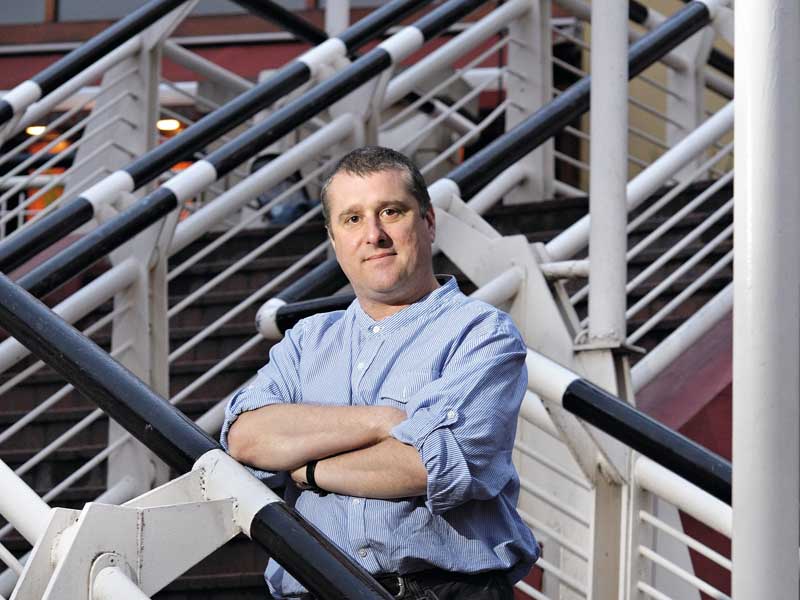Why the mobile web must mirror the desktop
Opera's Bruce Lawson on the importance of web standards

Not many proponents of web standards can claim to have appeared in a Bollywood film. Or taught the daughter of the crown princess in Thailand. Or worked as a tarot card reader in Istanbul. Or been a volunteer pharmacist in Calcutta.
Bruce Lawson seems to have been everywhere and done it all. So, in a way, it makes perfect sense that he's ended up as a web evangelist for Opera Software.
Bruce first got into web standards when he returned to the UK after eight years of travelling and was looking for work that combined his interest in IT with his English degree.
He got a job at (now defunct) computer book publisher Wrox, where he was asked to start a new brand for developers, which became Glasshaus. Its first book was about web accessibility and standards and galvanised the audience so much that Bruce was asked to talk at conferences. The rest, as they say, is history.
When .net magazine catches up with Bruce he's just finished a tour of UK universities to promote standards and is about to embark on a similar venture in Indonesia – the second biggest user of Opera Mini. So far the feedback has been very positive. "Five years ago, when I started off in web standards, real computer scientists thought the web was a bit of a toy programming environment that wasn't as good as C++," he explains. "I've noticed that there's a difference now. Even hardcore computer scientists are taking the web seriously as a platform and there's a real interest in standards."
Working with standards
Together with Patrick Lauke, Bruce co-leads the Accessibility Task Force of the Web Standards Project and has been involved in drafting the first British standard for web accessibility. His interest in accessibility was heightened when he was diagnosed with multiple sclerosis 10 years ago. "But I was always interested in the communication aspect of computers, the 'I' of IT … It just seems to me bizarre that you'd choose to make sites that can only be consumed by certain people in certain areas using certain devices."
Get daily insight, inspiration and deals in your inbox
Sign up for breaking news, reviews, opinion, top tech deals, and more.
Bruce reckons the browser wars are over once and for all. "There was a browser war, a war to the death," he says. "And IE very nearly won the web. I think the only people who were injured were the consumers and the developers. Now it's just a collaborative attempt to determine the rules against which we'll all healthily compete. There'll be no more death matches. Everybody tried the proprietary 'we will win the web' and it failed so disastrously that working with standards is the only viable way as a business route now."
Aside from an issue surrounding the Accessible Rich Internet Applications spec (WAI-ARIA), Bruce thinks Microsoft is now almost following standards. He also welcomes the advent of Google Chrome because, he says, it's important to have a choice. "Not everybody is going to like Opera, just like people don't always like coffee or strawberries." Some people will use Flock because they're interested in social networking, he points out, while others prefer Opera's fraud protection and speed dial feature, which gives you quick access to your favourite websites. Others will choose Chrome because they don't need many features and like its minimal user interface. "At Opera we've always been about browser choice," he stresses.
People use the web in different ways with different tools, but all over the world they essentially access the same content. Data aggregated by Opera shows that social networking, search, news and information are popular pretty much everywhere. And no matter what they use to browse the web, they still expect the same experience, especially in markets where the mobile web rules.